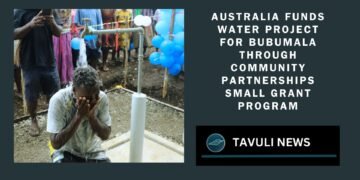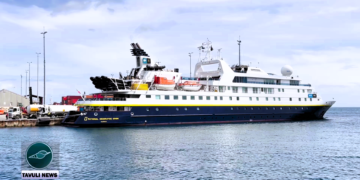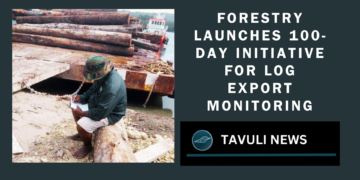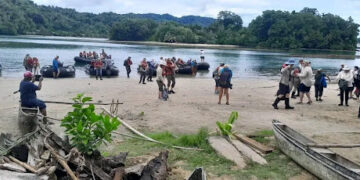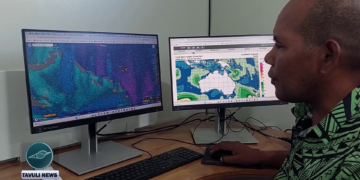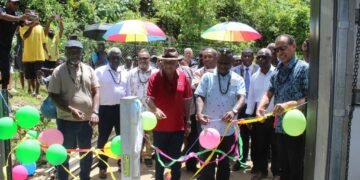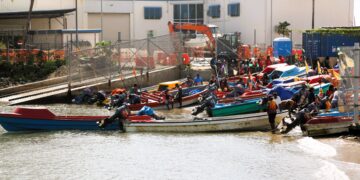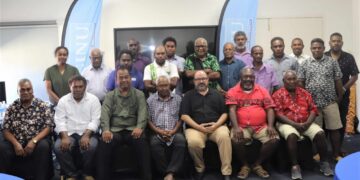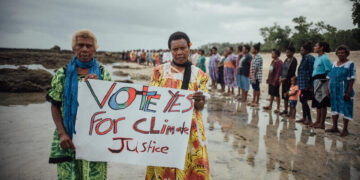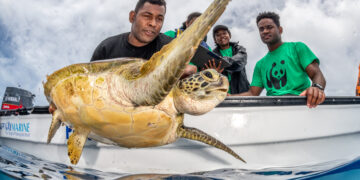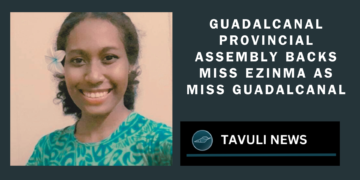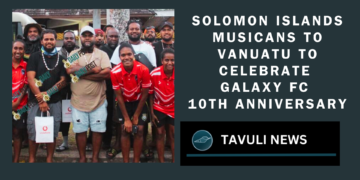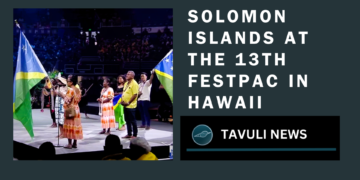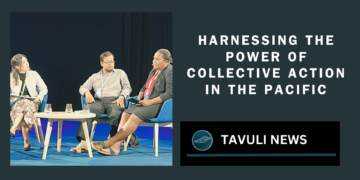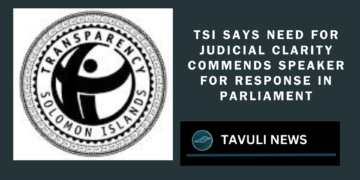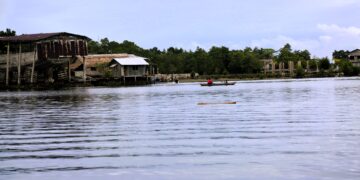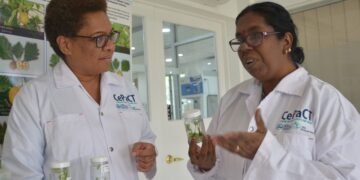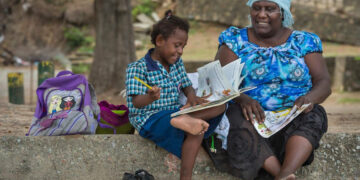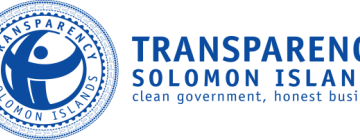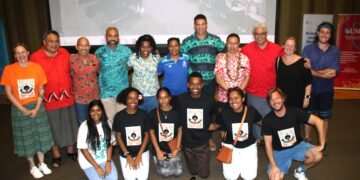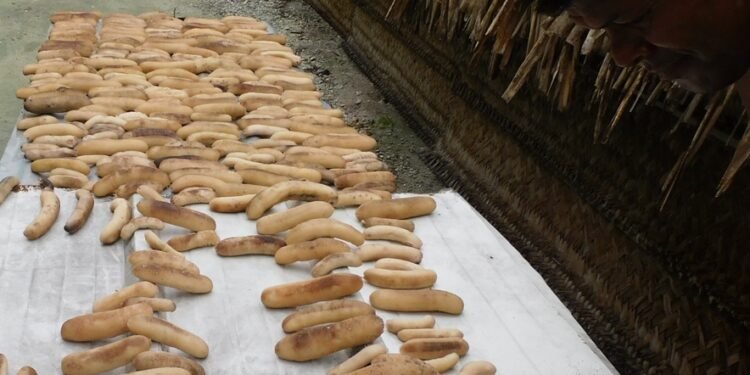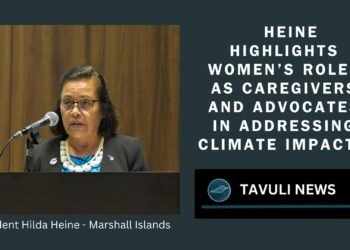Illegal Harvesting of Beche- de-mer continues during this ban period, especially in the Malaita Outer Islands Constituency (MOI). The law-abiding citizens of MOI scream it in social media, bringing it to the attention of the Commissioner of Police it is alleged but to no avail. Who fuels this illegal harvesting? Allegations are leveled at Asian buyers, who remain in the constituency well after the ban came into force, partnering with certain intending candidates for the 2024 National General Election, it is said.
Beche-de-mer is a marine resource that is harvested from the wild. Well done Ministry of Fisheries and Marine Resources for putting in place a regulation that regulates the harvesting of these finite resources through the banning of harvesting for certain periods at a time. This allows for the beche-de-mer stock to recover from the last period of harvesting. Furthermore, TSI lauds the Ministry of Fisheries for determining and publishing the minimum price that buyers must buy the various species of beche- de-mer at. This is a good start for a product that is so mired with corruption because of its high price from day one of this industry.
From the travels that TSI had made to various provinces and constituencies, it notes with admiration the work that community leadership and governance structures contributed towards the conservation and management of this resource. They made every effort to inform their people of the sizes not to be harvested. They made announcements during church events and community gatherings of which reefs they are not to touch during the harvest period etc., and which are open. This, however, is a difficult task, because at harvest time, all in the communities are involved in harvesting including the children who are collecting undersized beche-de-mer. By the time they return to their homes, nothing much can be done but to process these undersized beche- de-mer as they were already dead.
TSI also witnessed school age children going out at night to harvest beche- de-mer and being too sleepy to attend school the next day. Despite community leaders’ efforts, reminding parents not to involve school children in harvesting beche de mer, for families located in areas where these resources have been over-harvested it is difficult. For them to get a sizable harvest to meet their families basic needs, they need the whole family to be involved. Alternative income generating activities must be identified for them. Having visited constituencies that are involved in seaweed farming some of these remote areas could be ideal for farming seaweed. Seaweed is ready for harvest 6 weeks after planting. The going price for dried seaweed at the time that TSI was in these communities was $4.00/kg, much higher than copra.
Currently, there is a ban in force with regard to beche-de-mer harvesting. The ban means no harvesting, selling, and exporting of beche- de-mer. However, there are still complaints and information reaching Transparency Solomon Islands that those involved in this trade are continuously harvesting beche-de-mer as if beche-de-mer is an infinite resource, well into the ban period. Those involved in this trade are both foreigners and Solomon Islanders. This is what is happening in Malaita Outer Islands (MOI) constituency of Malaita Province. It is alleged that following the ban 2022, a number of foreigners involved in this trade continue to live on the islands supporting local harvesters to go on harvesting despite the ban. It is shared by a number of members of MOI communities, that they have raised this with the commissioner of Police. Sadly, he and his officers have done very little to enforce the ban, nor are the fisheries officers doing anything about it. Perhaps our development partners could consider, fast watercrafts to mobilise them to do their work instead of more vehicles in Honiara that can be seen going to betel nut vendors to buy betel nut or go shopping in.
Not only that, but it is alleged that in relation to the harvesting of beche-de-mer during “ban lifted period” and continuing of it into the ban period involves some intending candidates fund raising for the coming election. They are partnering with foreign personnel it is alleged. It is not surprising therefore, that nothing much is happening to monitor and hold those who breach ban to account. The campaign for the 2024 elections has already started, be it through CDF or such arrangements as alleged with regard to beche-de-mer harvesting.
The ban is there for a reason and that reason in part is to ensure that the owners of this resource can continue to enjoy this source of income. With what is currently happening, who really benefits from this product, who gets the biggest cut of the benefit? What schemes are there in place swindling resource owners of the benefits that are due to them needs exposing. From the information reaching Transparency Solomon Islands, it is mostly the foreign buyers, and their Solomon Islander partners that benefit from this high value resource and not the resource owners who labor to harvest the beche-de-mer. A study should be carried out to expose all the practices that defraud customary owners of the benefits of this very high value resource. This will allow for reforms that will protect the customary owners of this marine resource for their benefit and the benefit of the country. More importantly to ensure this resource can be available to future generations.
The government has determined and published the standard price that sellers are to sell their product and buyers to buy the product at. At the very top of the price is the sandfish to be sold or bought at $520/kg and orange fish/Ripple/Flower beche- de-mer at $35/kg. These are very high prices and if resource owners are paid the right price and left on their own to harvest and sell, without the Asians who fork in every harvest time, they can earn enough income to sustain and survive through to the next harvest time, when the ban is lifted. But this is not the case, the resource owners are left with the crumbs.
The world price for some of these species of beche-de-mer, especially sand fish, can go up to over US$1,800/kg. The price overseas also depends on the length(size) of the beche-de-mer, the longer the size, the higher the price. Being ignorant or not having this information, resource owners are denied the true benefit that they should be paid for their product (based on species) as from time-to-time buyers lower the price because of size.
Transparency Solomon Islands urges that stronger, tougher policies and legal reforms be put in place. This is to ensure the ban is respected and complied with. Such reforms should have stronger penalties, penalties that would ensure the law is complied with. Moreover, such stronger and tougher reforms will protect resource owners, give time for beche-de-mer to recover from the previous harvest from unscrupulous buyers and their partners to protect the industry into the future. Some of the areas that government can consider are:
- Licensed operators and buyers and buying/selling prices be published in the print media, Social Media, for all to see prior to lifting the ban.;
- Licensed operators, their partners and the resource owners engaged in this industry to be fully knowledgeable with the beche-de-mer management plan of the Ministry of Fisheries if such exists. If not put one in place, one requires all to comply.
- Foreign operators granted with license to export should be required to pay an environmental and overharvesting bond fee; Beche-de-mer play an important role in our marine ecosystem, keeping these clean and pristine.
- It should be mandatory on Exporters of this product to make available to the government within 14 days, their remittance after the date of export as a condition for qualifying for approval for their next export;
- Consider total allowable catch for each constituency taking into account special consideration for constituencies that depend on this resource for their livelihood.
Only two species of beche-de-mer have been moderately successful in aquaculture ponds. It is therefore a worry that if bans are not enforced, we could lose several species of our beche-de-mer especially the highly priced ones. Some could become extinct in the rush to supply the beche-de-mer (sea cucumber) to commercial outlets. Transparency Solomon Islands calls on the Royal Solomon Islands Police Force to uphold the laws of this country. Deal with these lawbreakers and protect this valuable resources for the period it is supposed to build up its population.
Transparency Solomon Islands understands just how important beche-de-mer is to the people of Malaita Outer Islands constituency. It calls on the Ministry of Fisheries and Marine Resources to explore alternative high value marine products for the people of this constituency for their income generating activities. Banning the harvesting of this high value product now and again is only part of a solution to the economic hardship faced by this constituency. Seaweed farming could be a solution to diversify their income generating activities.
TSI urges the Royal Solomon Islands Police Force to uphold the laws of this country for all and hold to account the few that continue to breach, fake our laws for their own benefit.
Source: Transparency Solomon Islands









